Filter by
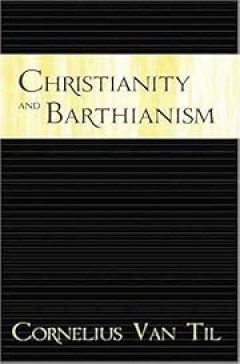
Christianity And Barthianism
KARL BARTH IS NOW REGARDED AS THE GREAT PROPHET OF THE TWENTIETH CENTURY. "Barth's Christology has, it is said, spoken the liberating word for our day. In it, we are told, God's sovereignty above man and his gracious presence with man, are kept in proper balance. "Barth's theology is rapidly becoming the rallying point for mod-ern ecumenism. Roman Catholic and New Protestant theologians a…
- Edition
- -
- ISBN/ISSN
- 978-0-87552-481-8
- Collation
- Paperback, 507 hlm, 14x21.5 cm
- Series Title
- -
- Call Number
- 230.4
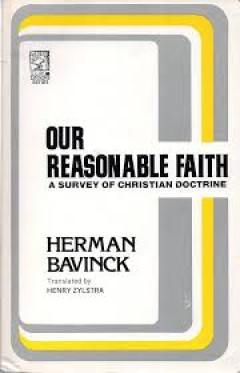
Our Reasonable Faith: A Survey of Christian Doctrine
"Our Reasonable Faith" is an accessible digest of the author's famous four volume "Reformed Dogmatics" and clearly presents the fundamental doctrines of Biblical theology. A practical handbook of theology, it is an outstanding and comprehensive statement of Christian faith and doctrine. Fully supported by Scriptural references, this book provides students, teachers, pastors, and lay readers wit…
- Edition
- -
- ISBN/ISSN
- 9780801005138
- Collation
- 568 hlm.
- Series Title
- -
- Call Number
- 230.42
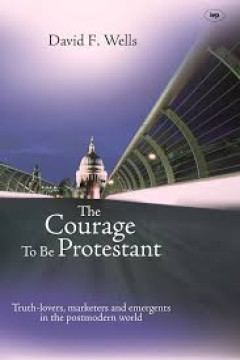
The Courage To Be Protestant
"It takes no courage to sign up as a Protestant." With these words, David Wells opens his bold challenge to the modern church. In this volume, Wells offers the summa of his critique of the evangelical landscape, as well as a call to return to the historic faith, one defined by the Reformation solas (grace, faith, and Scripture alone), and to a reverence for doctrine. "The Courage to be Protesta…
- Edition
- -
- ISBN/ISSN
- 978-1-84474-278-3
- Collation
- 267 hlm.; Soft Cover 15,5 x 23,2 cm
- Series Title
- -
- Call Number
- 230.4
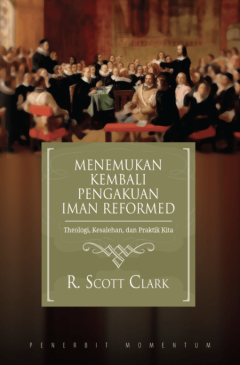
Menemukan Kembali Pengakuan Iman Reformed
"Walaupun saya antusias tentang apa yang disebut sebagai 'kebangkitan kaum Reformed muda,' kita masih menunggu renaisans theologi, kesalehan, dan praktik Reformed yang benar-benar konfesional. Karya historis Scott Clark, diagnosis dan kritiknya, serta saran-sarannya yang membangun, semuanya layak mendapatkan keterlibatan yang aktif dan penuh hormat. Saya menyambut baik masuknya diskusi ini tent…
- Edition
- 1
- ISBN/ISSN
- 9786023931262
- Collation
- Softcover; 362 hlm.; 24 x 15.5 cm
- Series Title
- -
- Call Number
- 230.42
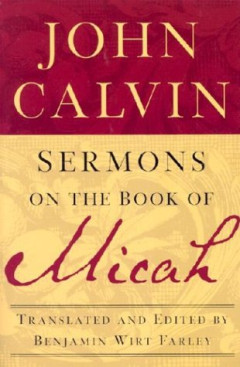
Sermons on the Book of Micah
The Book of Micah confronts idolatry, superstition, confusion, alienation, inhumane acts against one's neighbors, and desolation of one's being at the most profound personal and societal level. When preaching through this prophetic book, John Calvin had no more difficulty applying Micah's prophecies to his sixteenth-century countrymen than do preachers today. Calvin's twenty-eight sermons on Mi…
- Edition
- -
- ISBN/ISSN
- 9780875520025
- Collation
- Softcover; 433 hlm.; 15.54 x 22.81 cm
- Series Title
- -
- Call Number
- 252.042

Calvin and the Reformation: Four Studies by Emile Doumergue, August Lang, Her…
The four studies that make up this book were originally prepared for the Princeton Theological Review in celebration of the 400th anniversary of Calvin's birth. The article by Emile Doumergue deals with Calvin's view of asceticism; Lang's study analyses Calvin's doctrine of natural law; Bavinck's essay discusses Calvin's understanding of common grace; Warfield analyses Calvin's teaching on the …
- Edition
- -
- ISBN/ISSN
- 9781592444786
- Collation
- Softcover; 260 hlm.; 14 x 21.5 cm
- Series Title
- -
- Call Number
- 230.4
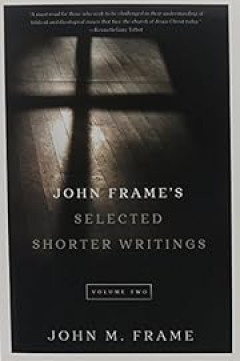
John Frame's Selected Shorter Writings, Vol. 2
"Short, pointed essays summarize some of John Frame's central (and a few peripheral) ideas on theological method, apologetics, and ethics, beginning with Frame's shortest and clearest presentation of his signature concept of triperspectivalism-the need to read Scripture from various perspectives, especially threefold perspectives that reflect the nature of the Trinity."--Back cover.
- Edition
- -
- ISBN/ISSN
- 9781629950785
- Collation
- Soft Cover, 402 hlm, 15.5x23 cm
- Series Title
- -
- Call Number
- 230.42
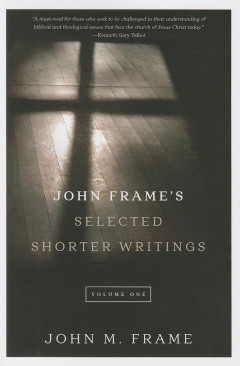
John Frame's Selected Shorter Writings, Vol. 1
Short, pointed essays summarize some of John Frame's central (and a few peripheral) ideas on theological method, apologetics, and ethics, beginning with Frame's shortest and clearest presentation of his signature concept of triperspectivalism—the need to read Scripture from various perspective, especially threefold, especially threefold perspectives that reflect the nature of the Trinity.
- Edition
- -
- ISBN/ISSN
- 9781596387317
- Collation
- Softcover; 331 hlm.; 15.5 x 23 cm
- Series Title
- John Frame's Selected Shorter Writings
- Call Number
- 230.42

Analysis of the Institutes of the Christian Religion of John Calvin
Calvin's Institutes is one of the most important theological works of the last millennium, but even seminarians and pastors have difficulty finishing it. Battles was experienced in guiding students through this volume, teaching it for forty-five years. His detailed outline and summary are now available for everyone interested in Calvin's great work.
- Edition
- -
- ISBN/ISSN
- 9780875521824
- Collation
- Softcover; 424 hlm.; 14.07 x 21.54 cm
- Series Title
- -
- Call Number
- 230.4
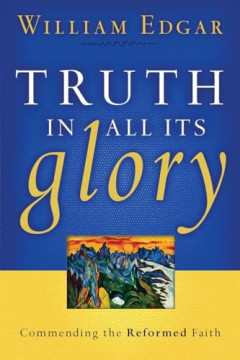
Truth in All Its Glory: Commending the Reformed Faith
"The first time I heard the expression Reformed theology, I was not much attracted to it," writes William Edgar. What came to mind were abuses done in its name. "My mind was changed over a period of time," he goes on to say, and here he commends the richness and beauty of the Reformed worldview he now cherishes. Edgar traces the origin of the Reformed faith, explores its central truths, and pro…
- Edition
- -
- ISBN/ISSN
- 9780875527949 / 0875527949
- Collation
- Softcover; 311 hlm.; 15 x 22.5 cm
- Series Title
- -
- Call Number
- 230.42
 Computer Science, Information & General Works
Computer Science, Information & General Works  Philosophy & Psychology
Philosophy & Psychology  Religion
Religion  Social Sciences
Social Sciences  Language
Language  Pure Science
Pure Science  Applied Sciences
Applied Sciences  Art & Recreation
Art & Recreation  Literature
Literature  History & Geography
History & Geography